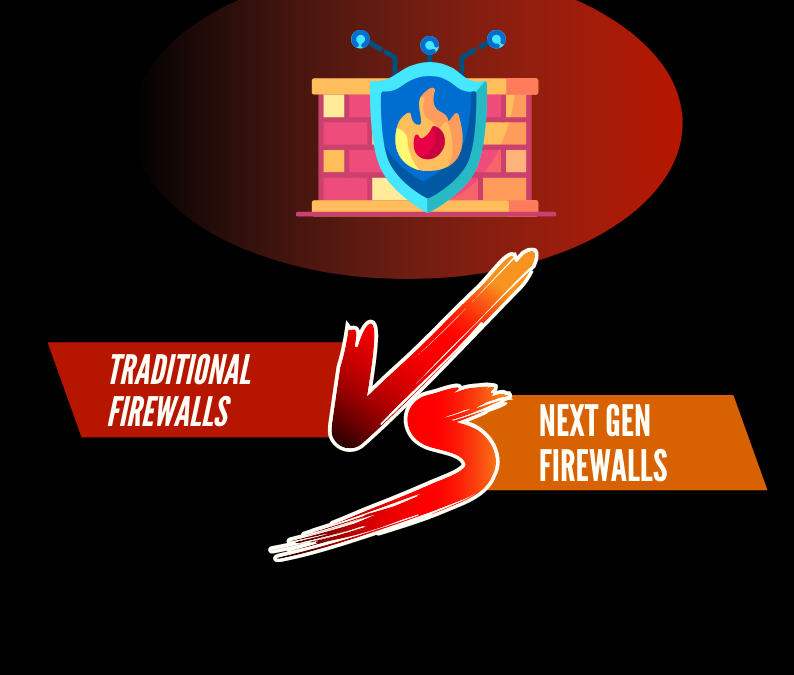How does a firewall work?
What are the basic types of Firewalls?
Packet layer: The packet layer analyzes the traffic in the transport protocol layer. Applications at the transport protocol layer communicate using specific protocols like the Transmission Control Protocol (TCP) and User Datagram Protocol (UDP). The firewall at this layer verifies the data packets and actively scans for malicious codes that can potentially harm the network or system. If the firewall identifies any data packet as a potential threat, it actively removes it.

NGFW vs Traditional Firewall: Key Differences and Advantages:
NGFW (Next-Generation Firewalls) and traditional firewalls
They are both designed to protect networks from unauthorized access and threats.NGFW (Next-Generation Firewalls) and traditional firewalls are both designed to protect networks from unauthorized access and threats.
Here are some of the key differences and advantages of NGFWs over traditional firewalls:
1. Application Awareness: NGFWs possess the capability to identify and manage applications, going beyond ports and protocols. This empowers them to enforce more precise policies and offer enhanced defense against threats specific to applications, including those arising from web-based applications or social media platforms.
2. Deep Packet Inspection: NGFWs have the ability to conduct deep packet inspection (DPI), enabling them to analyze the contents of network packets beyond just the packet headers. This empowers them to detect and prevent more sophisticated threats, including hidden malware and viruses, by examining the actual data within the packets.
3. Threat Intelligence: NGFWs possess built-in threat intelligence capabilities that allow them to detect and block both known and unknown threats. By utilizing behavioral analysis, they can identify threats that have not been previously identified. This feature is crucial in the face of ever-changing and evolving cyber threats.
4. User Identity: NGFWs can identify individual users and apply policies based on their roles or access levels, enabling more granular control over network access and providing enhanced protection against insider threats.
5. Integration with other security tools: NGFWs can integrate with other security tools, such as intrusion prevention systems (IPS) and security information and event management (SIEM) solutions, to create a more comprehensive security posture.
NGFWs surpass traditional firewalls in providing advanced features and capabilities, offering enhanced protection against modern threats. NGFWs offer application awareness, deep packet inspection, threat intelligence, user identity, and seamless integration with other security tools. As organizations face more advanced threats, NGFWs gain prominence alongside traditional firewalls.
We at Vays deal with both Traditional Firewalls and Next Generation Firewalls. To know more of our services on these lines CLICK HERE

